A year has passed since the Taliban imposed a ban on women working in non -governmental organizations (NGOs). The restrictions have left tens of thousands of Afghan women without job opportunities.
The ban, first announced on December 24, 2022, remains in place along with other restrictions, including a ban on women’seducation at universities, alongside new ones that further restrict the role of Afghan women in the workforce. The latest restrictions include a ban on women working for UN agencies and the closure of all beauty salons.
The situation is getting worse.
Contrary to initial claims that the ban was temporary, a year later, the Taliban has yet to lift restrictions on women’s employment opportunities, leading to serious consequences, including significant economic challenges for women who previously worked in a variety of positions.
Mariam, a former cook in a private organization, used to earn 13,000 Afghani (Afghan currency, = 4.5 million VND) to support her family. Now she has turned to weaving to support her family as the responsibility has fallen entirely on her. Maryam’s husband is sick and she is the sole breadwinner in a family of nine.
Rozita, the sole breadwinner in a family of six, who used to work for NGOs and is now unemployed, is busy preparing food in Kabul. She is calling on the Taliban to provide women with employment opportunities in the country. “I am the breadwinner in my own house. There are six of us in the family. I came here because of economic difficulties, so we opened a restaurant here,” she said.
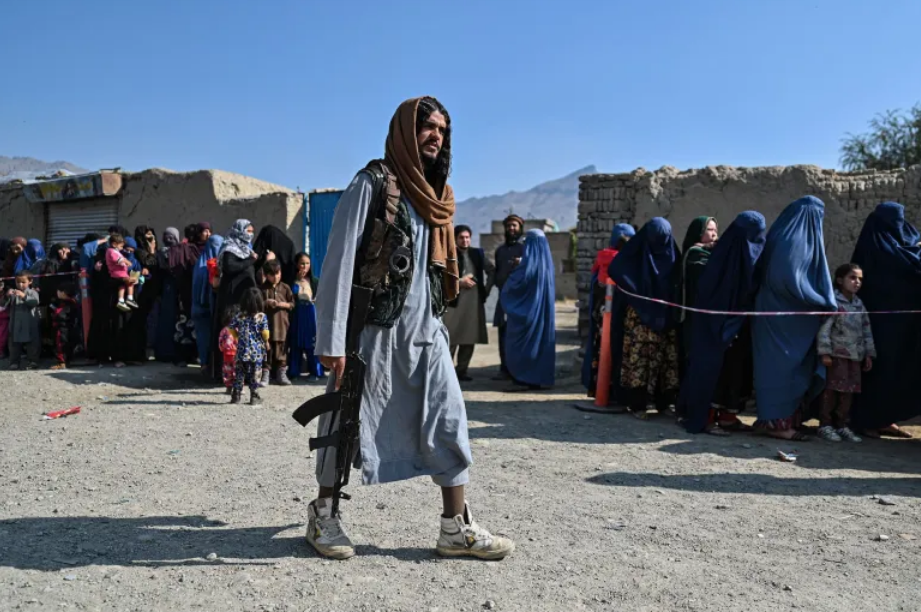
The Taliban have banned most Afghan women from working for non-governmental organizations (NGOs), including United Nations agencies, in the South Asian country for more than a year. Photo: Getty Images
International organizations, including the United Nations, have raised concerns about the impact of these restrictions, with one assessment indicating that 86% of non-governmental organization (NGO) activities in Afghanistan have been halted.
The International Labor Organization (ILO) reported that the employment rate of Afghan women fell by 25% in the fourth quarter of 2022. This figure may have increased due to additional restrictions imposed by the Taliban.
A UN survey in June 2023 found that 85% of women reported a decline in income-generating activities, with 41% reporting no income-generating activities at all. Bans on education and work were seen as contributing factors to negative coping mechanisms, including child labor and early marriage.
With the ban on women working in non-governmental organizations (NGOs) entering its second year, the United Nations Office for the Coordination of Humanitarian Affairs (OCHA) said in a report that the ban has had a major impact on the Afghan economy, which relies on humanitarian aid, worsening the situation.
The overall impact is worrying.
“In the future, we have to build a good economy with the cooperation of women and the Islamic Emirate has to build appropriate mechanisms and provide jobs for women in government agencies so that women can serve the society,” said Mohammad Nabi, an Afghan economist.
“If the Taliban do not lift these restrictions, they will not be able to receive formal international recognition, and on the contrary, additional sanctions will be imposed on them,” said Shukria Barakzai, former Afghan ambassador to Norway.
The Taliban’s continued enforcement of work restrictions, including a ban on women working for UN agencies and in beauty salons since April 2023, has drawn global condemnation. The international community has stressed the importance of lifting these restrictions to normalize relations with the Taliban. However, the Taliban has yet to meet these demands.
“Even if these policies are reversed, this lost time cannot be recovered and no country can function, prosper and develop without the participation of all its people and opportunities for all its citizens,” said women’s rights expert Heather Barr.
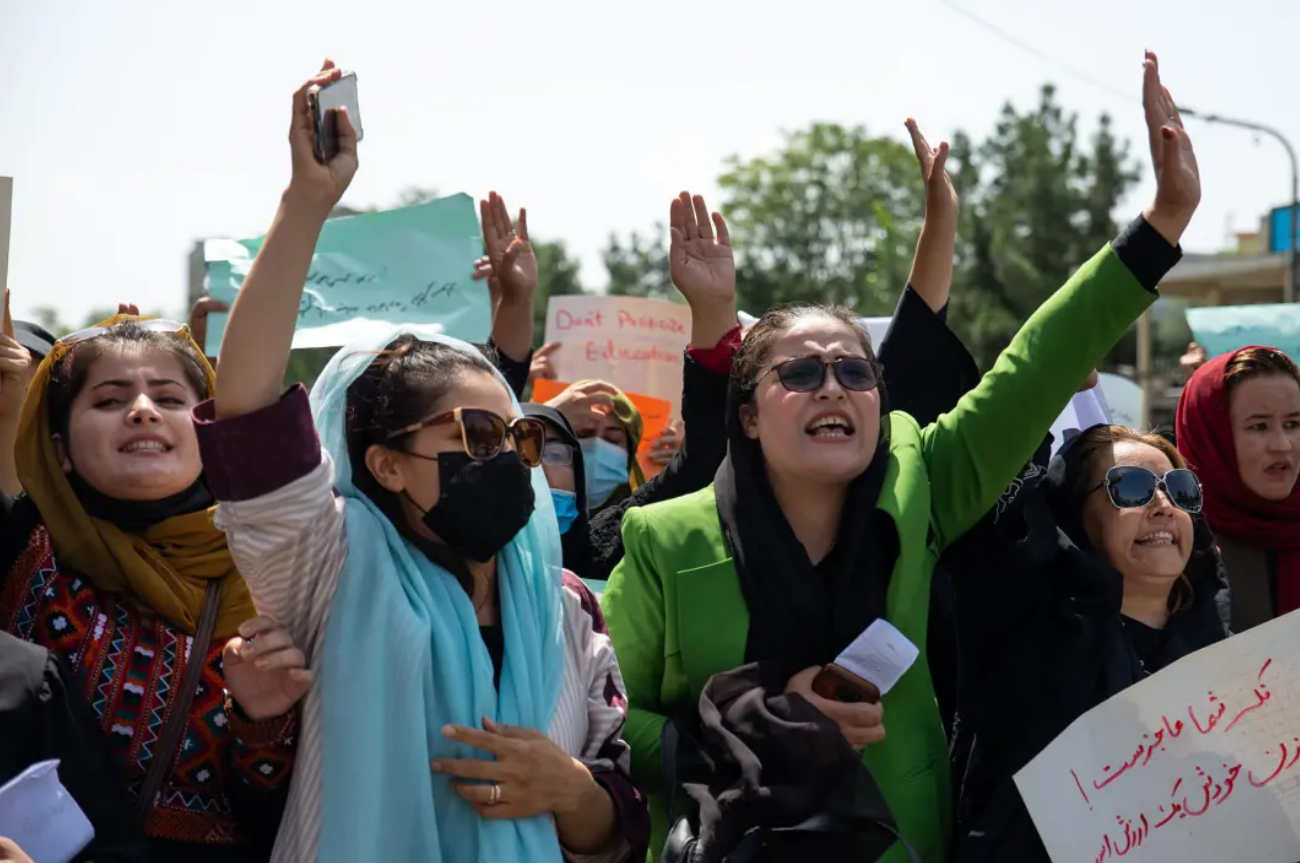
Afghan women protest for "bread, jobs and freedom" in Kabul, August 13, 2022 - marking one year since the Taliban returned to power in the South Asian country. Photo: Getty Images
While some Afghan women are restricted from working in specific sectors, the overall impact of the work ban is a major concern. The Taliban claim that some 150,000 women work in the health sector and another 200,000 in education. In fact, these women themselves say they are paid little and are not given active roles.
Reports from UN-affiliated organizations stressed that the Taliban's restrictions have exacerbated economic and humanitarian crises in the South Asian country, where some 28 million people are in dire need of humanitarian assistance, highlighting the importance of women's participation in the recovery process.
Despite ongoing challenges, women in Afghanistan have shown resilience and continued to fight for basic rights, demonstrating slogans such as “bread, work, freedom” – a year since the ban on women’s employment was imposed .
Minh Duc (According to Amu TV, TOLO News)
Source




























































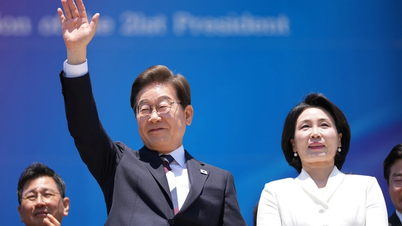















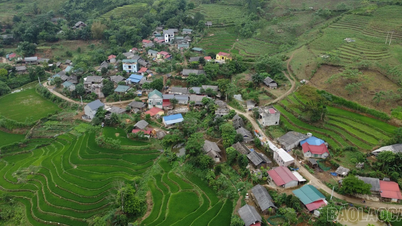




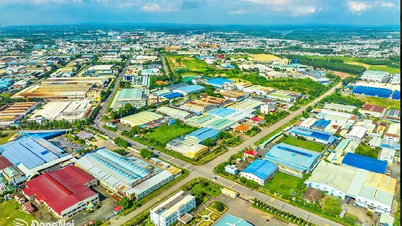









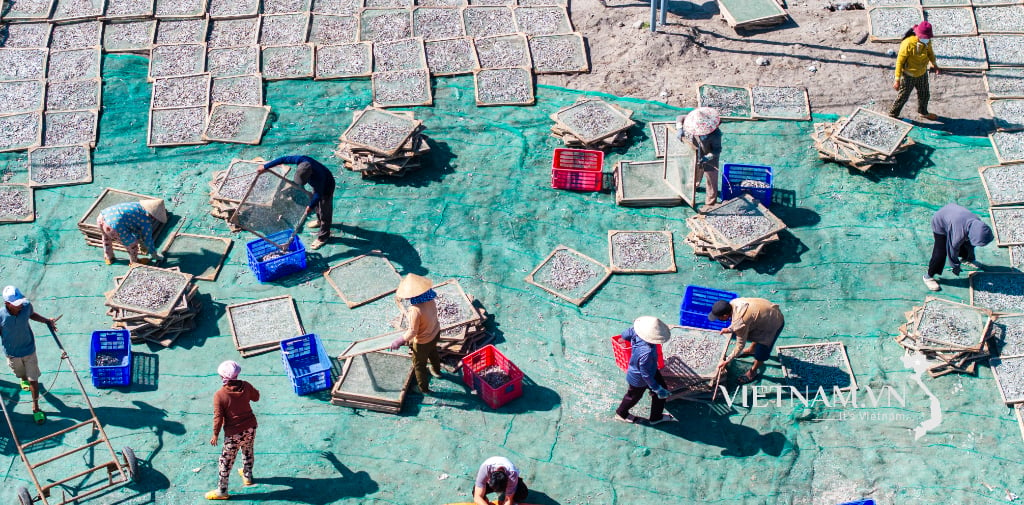
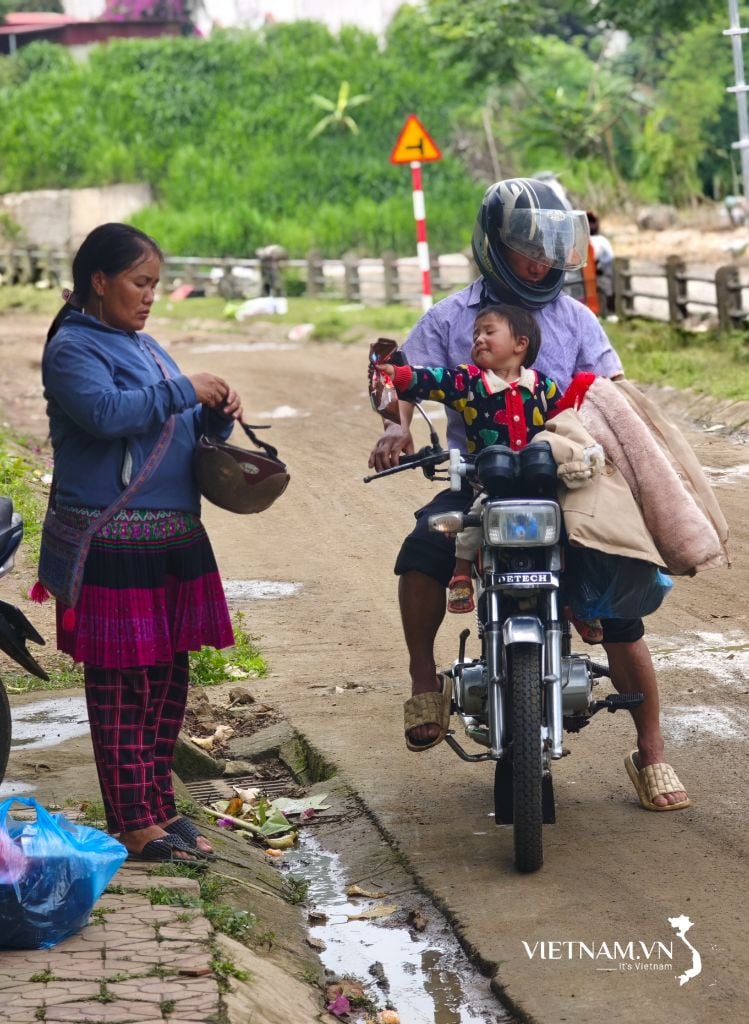

Comment (0)